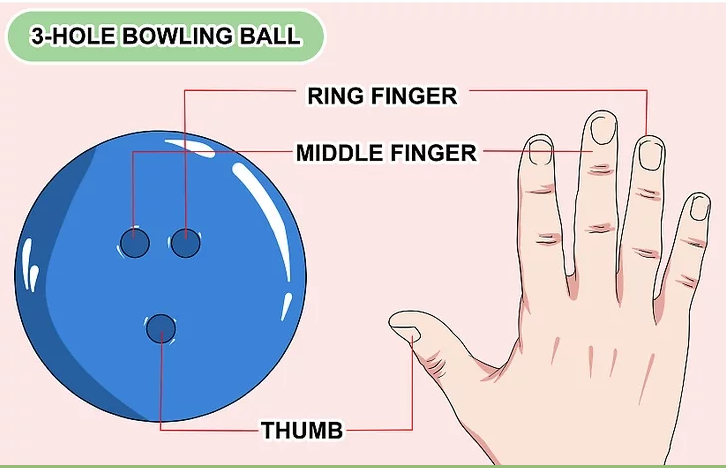Living in a close-knit community is a rewarding experience, but it can also come with its share of challenges. One such challenge is dealing with jealousy among neighbors.
In this comprehensive guide, we’ll explore the signs of a jealous neighbor, shedding light on the subtle indicators that may go unnoticed. We’ll also provide insights on how to address jealousy and maintain a harmonious neighborhood.
50 Signs of a Jealous Neighbor
Signs of a jealous neighbor include passive-aggressive behavior, excessive comparisons, negative comments, and attempts to undermine your achievements. Causes of jealousy among neighbors often stem from feelings of inadequacy, insecurity, or a desire to match or surpass your lifestyle and accomplishments. Jealousy can also be fueled by a sense of competition, a need for validation, or unresolved personal issues. Recognizing these signs and addressing them with empathy and open communication can help foster better neighborly relationships.

Here are 50 potential indicators that might suggest your neighbor is experiencing jealousy:
Excessive Comparisons
When a neighbor engages in excessive comparisons, it means they have a keen eye on your life and possessions, constantly measuring themselves against what they see in your life.
This behavior is a manifestation of their desire to gauge how they stack up against you. They may scrutinize your house, your car, your achievements, or even your lifestyle choices, all with the aim of assessing whether they are on par with, or superior to, you in these aspects.
Negative Comments
Jealous neighbors often resort to negative comments as a subtle way to express their envy. These comments can range from subtle critiques to overtly negative remarks about your accomplishments.
By making such comments, they attempt to undermine your achievements, casting doubt on the value of your successes or possessions. This behavior may not always be direct, making it challenging to identify their jealousy.
Avoidance
When a neighbor avoids or excludes you from social gatherings, it’s a clear sign of their jealousy. They may do this to distance themselves from you emotionally, as interacting with you reminds them of their feelings of envy.
Avoidance can lead to strained social dynamics within the community and hinder the development of positive neighborly relationships.
Frequent Gossip
Engaging in frequent gossip or rumors about you is a less subtle expression of jealousy. Jealous neighbors may indulge in spreading unverified information or negative stories about you to tarnish your reputation.
Gossip can be divisive and erode trust within the neighborhood, making it essential to address such behavior promptly.
Sabotage
In extreme cases, jealousy can escalate to the point where a neighbor resorts to acts of sabotage. This could involve damaging or vandalizing your property or belongings as a means of undermining your happiness or success.
Sabotage is a destructive expression of envy and can have legal consequences if not addressed appropriately.
Overly Competitive
Some neighbors display an excessive competitive streak, always striving to one-up you in various aspects of life. Whether it’s competing for the best garden, the fanciest car, or the most prestigious job title, their constant efforts to outshine you can create an atmosphere of tension and rivalry within the neighborhood.
Passive Aggression
Passive-aggressive behavior is a common way for jealous neighbors to express their negative feelings towards you. They may engage in behaviors such as giving you the silent treatment, making sarcastic remarks, or intentionally inconveniencing you in subtle ways. This indirect hostility is their way of venting their envy without directly addressing it.
Exaggerated Praise
On the flip side, some jealous neighbors may offer insincere or overly exaggerated compliments. This behavior is an attempt to mask their true feelings of envy with false flattery. While it may seem positive on the surface, it often comes across as insincere and can create discomfort in your interactions.
Ignoring You
Purposely ignoring you when you’re around is another tactic employed by jealous neighbors. By pretending not to see you or engaging with you, they hope to diminish your presence and importance in social situations. This behavior is a passive way of asserting their superiority.
Excessive Monitoring
Jealous neighbors may seem overly interested in your activities, closely observing your daily life. They might inquire about your schedule, your routines, or your plans in a way that suggests an unusual level of curiosity. This behavior stems from their need to constantly gauge their own life against yours.
Copying
When a neighbor mimics your choices, whether it’s your fashion sense, home decor, or lifestyle decisions, it’s a clear sign of jealousy. They believe that by replicating your choices, they can emulate your success or happiness. This imitation is often a misguided attempt to attain the same level of satisfaction that you appear to have achieved.
Backhanded Compliments
Backhanded compliments are a form of subtle, disguised insults masked as praise. When your neighbor gives you a backhanded compliment, they appear to be acknowledging your achievements or qualities, but there’s a hidden insult or criticism within the statement.
For instance, they might say something like, “You’re so lucky to have such a nice house; I could never live in such a busy neighborhood.”
Undermining Your Achievements
Jealous neighbors often downplay your successes to diminish their significance. They might dismiss your achievements as mere luck or suggest that what you’ve accomplished isn’t as impressive as it seems. This behavior aims to undermine your self-confidence and cast doubt on your capabilities.
Excessive Flattery
To conceal their jealousy, some neighbors resort to excessive flattery. They shower you with compliments, often insincere or exaggerated, in an attempt to mask their true feelings. While it may seem positive at first, this insincere praise can feel uncomfortable and artificial in your interactions.
Intrusive Questions
Jealous neighbors may cross personal boundaries by asking intrusive questions about your personal life. They may inquire about your finances, your relationships, or other private matters, often with the aim of gathering information to validate their feelings of envy.
Sudden Friendliness
A sudden change in demeanor from aloofness to excessive friendliness can be a sign of jealousy. If your neighbor becomes overly friendly after learning about your achievements or successes, it may be an attempt to get closer to you to monitor your life more closely.
Cold Shoulder
Giving you the cold shoulder in group settings or social gatherings is a tactic used by jealous neighbors to assert their feelings of superiority. By deliberately ignoring you or treating you with indifference in social situations, they aim to downplay your significance and assert control over the group dynamic.
Competing for Attention
Jealous neighbors often engage in attention-seeking behaviors in social situations. They might tell elaborate stories or divert conversations to draw attention away from you and onto themselves. This competitive behavior stems from their desire to be the center of attention and diminish your presence.
Ignoring Your Achievements
When you share your accomplishments with a jealous neighbor, they may act uninterested or disengaged. They won’t acknowledge your successes or offer congratulations. This behavior reflects their discomfort with your achievements and their reluctance to give you the recognition you deserve.
Exaggerating Their Own Success
In an attempt to overshadow your accomplishments, jealous neighbors may constantly brag about their achievements. They will exaggerate their own successes, often presenting them in a grandiose manner to divert attention away from your achievements.
Excessive Criticism
Jealous neighbors may nitpick and criticize your choices, decisions, or actions. They might find fault even in minor details, aiming to erode your self-confidence and create doubt about your abilities.
Unwarranted Critique
Going beyond constructive criticism, they may critique your minor mistakes or choices that don’t warrant such scrutiny. This unwarranted critique is a way for them to assert their perceived superiority.
Also Read: My Landlord Wants Me Out: What Are My Rights? [Answered]
Pretending Not to Care
When you discuss your goals or aspirations, jealous neighbors may act disinterested or dismissive. They’ll pretend not to care about your endeavors, even if your goals are important to you. This indifference is their way of downplaying the significance of your aspirations.
Competing in Appearances
Jealous neighbors may try to outdo you in terms of appearance or clothing. They may constantly strive to look better or have more stylish possessions, using their outward appearance as a means of competing with you.
Excessive Prying
Some jealous neighbors may ask intrusive questions about your finances or other personal matters. Their prying questions are designed to gather information to fuel their feelings of envy or to find ways to undermine your achievements.
Stealing Credit
In some instances, jealous neighbors may take credit for your ideas or contributions, either subtly or overtly. This behavior aims to diminish your contributions and claim them as their own.
Downplaying Your Possessions
When your neighbor downplays the value of your possessions, they undermine the significance of what you own. They may make remarks that suggest your possessions aren’t as impressive as they appear. This behavior aims to diminish your sense of accomplishment and cast doubt on the worth of your belongings.
Passive Disapproval
Passive disapproval involves expressing dissatisfaction or disagreement through non-verbal or subtle actions. Your neighbor may roll their eyes, sigh, or exhibit body language that conveys their disapproval without openly stating it. This behavior creates an atmosphere of tension and discomfort.
Overly Critical Eye
Jealous neighbors often scrutinize your actions and decisions with an overly critical eye. They look for flaws or mistakes, no matter how minor, to point out and critique. This constant scrutiny can erode your self-confidence and create self-doubt.
Spreading False Information
Some jealous neighbors resort to spreading false rumors or information about you. This can be a harmful tactic aimed at tarnishing your reputation or undermining your credibility within the community. Addressing such false information is crucial to maintain trust among neighbors.
Targeting Your Friends
Jealousy may extend to trying to turn your friends against you. Your neighbor might make negative comments about you to mutual friends or create situations that cause division. Their goal is to isolate you socially and erode your support system.
Competing for Praise
Jealous neighbors consistently vie for compliments and recognition, even when it’s not warranted. They seek validation and acknowledgment to boost their self-esteem and overshadow your achievements. This competitive behavior can create tension in social interactions.
Overly Nosy
Exhibiting excessive interest in your personal life, your decisions, and your plans is a hallmark of nosy behavior driven by jealousy. They may ask prying questions about your finances, relationships, or future goals to gather information and possibly find ways to undermine you.
Ignoring Your Help
When you offer assistance or help, jealous neighbors may refuse or dismiss your offers. They won’t accept your support, even if it’s genuine, as a way to assert their independence and downplay your willingness to contribute positively to the community.
Ignoring Your Success
Jealous neighbors may act indifferent or dismissive when you reach milestones or achieve personal goals. They might not offer congratulations or acknowledge your efforts, making it challenging for you to enjoy your successes fully.
One-Upmanship
One-upmanship is a behavior where they frequently share stories of their achievements, often in an exaggerated or boastful manner, to overshadow yours. They aim to position themselves as superior in various aspects of life, creating a competitive atmosphere.
Inconsistent Behavior
Their behavior can be inconsistent, swinging between friendliness and distance. They might be warm and engaging one day and aloof or dismissive the next. This inconsistency can create confusion and discomfort in your interactions.
Pretending Not to Notice
Sometimes, they may act as if they haven’t noticed your accomplishments or good fortune, even when it’s clear they are aware. This pretense is a way to diminish your achievements and downplay their feelings of envy.
Conspicuous Silence
Jealous neighbors might conspicuously avoid acknowledging your good news or achievements. They may remain silent or change the subject when your successes are discussed, creating a noticeable gap in the conversation.
Over-the-Top Gifts
To compensate for their jealousy, some neighbors may give extravagant gifts or favors. These gestures are often an attempt to buy your favor or create a sense of indebtedness, masking their true feelings.
Creating Drama
They may stir up drama or conflict within the community to divert attention away from your achievements. By creating chaos or tension, they hope to shift the focus away from your successes and onto the issues they’ve stirred up.
Ignoring Your Family
Jealous neighbors may avoid or dismiss your family members as well. They might exclude them from social interactions or ignore their presence, further isolating you within the community.
Questioning Your Success
They may ask skeptical or cynical questions about your achievements, suggesting that your successes are merely a result of luck or chance. This questioning is a way to undermine your hard work and dedication.
Discrediting Your Efforts
Jealous neighbors may suggest that your successes are not due to your efforts but are purely coincidental. They aim to discredit your dedication and minimize your accomplishments.
Excluding You
They could exclude you from group activities or conversations, further isolating you within the neighborhood. This exclusionary behavior is a tactic to assert their dominance and diminish your influence.
Pretending to Forget
They might pretend to forget or overlook your accomplishments, diminishing their significance in social settings. This feigned indifference is a way to downplay your achievements.
Feigned Indifference
Jealous neighbors may pretend not to care about your achievements, even when they are aware of them. This apathetic attitude is a way to mask their true feelings of envy.
Avoiding Eye Contact
Avoiding making eye contact with you in social situations is a behavior that conveys their discomfort and jealousy. They aim to distance themselves emotionally by avoiding direct visual contact.
Creating Competitions
Inventing competitions or comparisons is another tactic used to assert their superiority. They might constantly find ways to pit themselves against you in various aspects of life.
Belittling Your Efforts
Finally, they might minimize your hard work and dedication, suggesting that your efforts are insignificant or unworthy of praise. This belittling behavior aims to undermine your sense of accomplishment.
Keep in mind that these signs are not definitive proof of jealousy, and people’s behaviors can be influenced by various factors. It’s essential to approach such situations with empathy and open communication to address any underlying issues.
How to deal with a Jealous Neighbor
Dealing with a jealous neighbor can be challenging, but these 15 tips can help you navigate the situation and maintain a positive neighborhood environment:
- Stay Calm: Keep your emotions in check and avoid reacting negatively to their jealousy.
- Empathize: Try to understand their perspective and the underlying causes of their jealousy.
- Open Communication: Engage in a friendly and open dialogue to address any concerns or misunderstandings.
- Set Boundaries: Establish personal boundaries to protect your privacy and well-being.
- Stay Positive: Maintain a positive attitude and don’t let their jealousy affect your mood or behavior.
- Avoid Confrontation: Refrain from confrontations that can escalate tensions further.
- Be Diplomatic: If necessary, involve a third party or mediator to facilitate discussions.
- Focus on Community: Promote a sense of community by participating in neighborhood events and activities.
- Limit Sharing: Be cautious about sharing personal information or achievements with them.
- Document Incidents: Keep a record of any problematic behavior in case it escalates.
- Seek Support: Talk to other neighbors or friends for emotional support and advice.
- Legal Recourse: If their actions become harassment or threats, consult local authorities or legal professionals.
- Stay Secure: Ensure the security of your property to prevent any potential sabotage.
- Ignore Provocations: Don’t engage in arguments or respond to their attempts to provoke you.
- Maintain Perspective: Remember that their jealousy is their issue, not yours, and focus on your well-being and happiness.
Ultimately, fostering a harmonious neighborhood may require patience and understanding, but these tips can help you navigate challenging situations with a jealous neighbor effectively.
Conclusion
Recognizing the signs of a jealous neighbor is the first step toward maintaining a harmonious community. By addressing jealousy with empathy and open communication, you can nurture positive relationships and create a neighborly environment built on cooperation and support.
Also Read: How to Legally Screw Over Your Landlord [15 + Tips To Scare Your Landlord]







